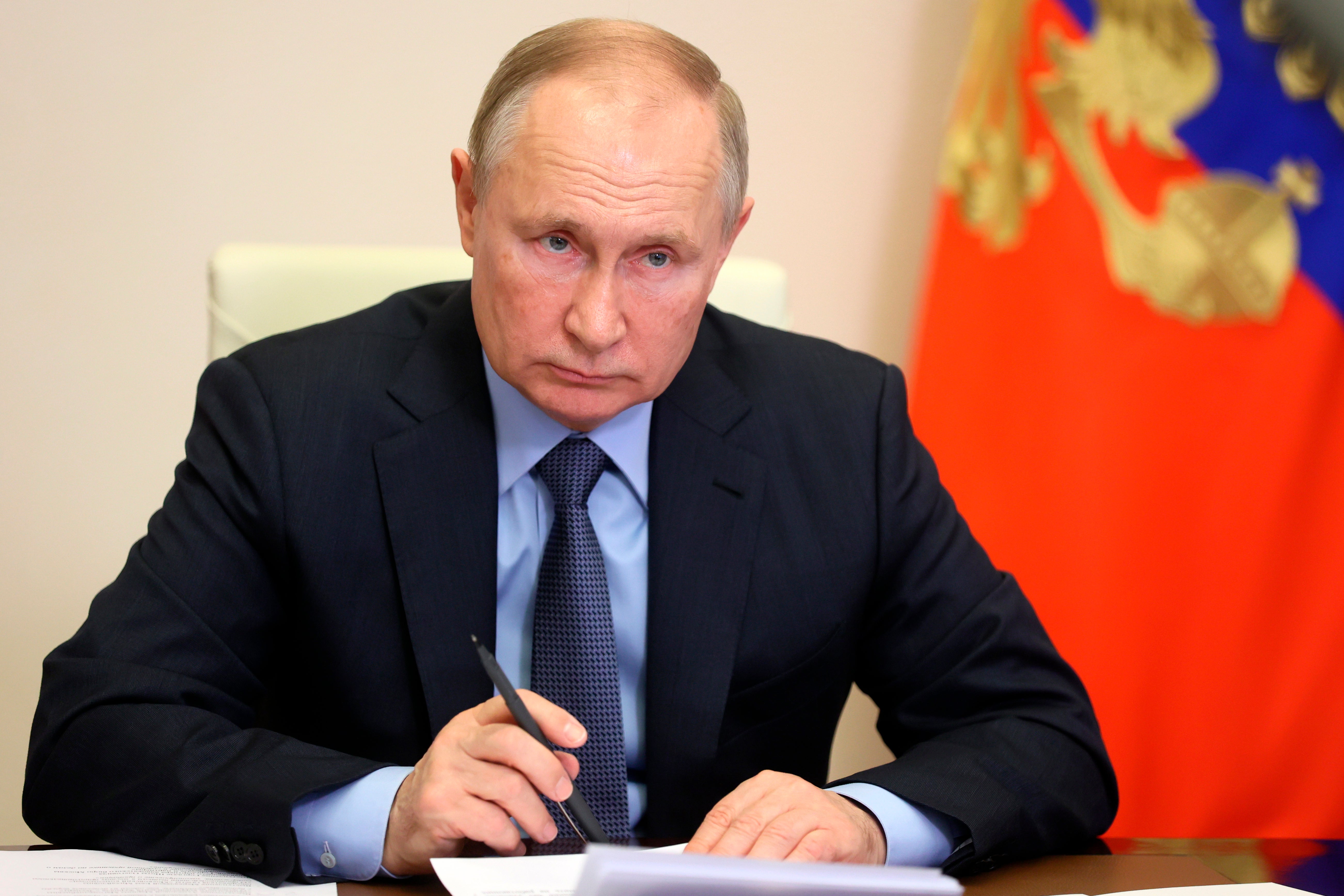Putin rejects complaints over move to shut top rights group
Russian President Vladimir Putin has brushed aside complaints about prosecutors’ move to shut down one of the country’s most prominent human rights groups, claiming that it listed Nazi collaborators among the victims of Soviet-era repression

Your support helps us to tell the story
From reproductive rights to climate change to Big Tech, The Independent is on the ground when the story is developing. Whether it's investigating the financials of Elon Musk's pro-Trump PAC or producing our latest documentary, 'The A Word', which shines a light on the American women fighting for reproductive rights, we know how important it is to parse out the facts from the messaging.
At such a critical moment in US history, we need reporters on the ground. Your donation allows us to keep sending journalists to speak to both sides of the story.
The Independent is trusted by Americans across the entire political spectrum. And unlike many other quality news outlets, we choose not to lock Americans out of our reporting and analysis with paywalls. We believe quality journalism should be available to everyone, paid for by those who can afford it.
Your support makes all the difference.President Vladimir Putin on Thursday brushed aside complaints about prosecutors' move to close one of Russia’s most prominent human rights groups, claiming it listed Nazi collaborators among the victims of Soviet-era repression. The Memorial group denied the allegations.
During a video call with members of the Kremlin human rights council, Putin responded to their complaints by asserting that Memorial had listed people involved in the killings of Jews during World War II alongside victims of Soviet repression. He didn't elaborate.
“Memorial should have conformed to the humane goals it has declared as the core of its activities and it shouldn't have done things that I mentioned," Putin said, according to Russian news reports.
Speaking on independent Dozhd television, Nikita Petrov, a leading member of Memorial, rejected Putin's claim as false. He argued that the group squarely relied on the authorities' decisions rehabilitating the victims of Soviet-era repressions while compiling their lists.
Petrov also strongly rejected Putin's claim that Memorial, which protested human rights violations in Chechnya and other regions of Russia's volatile North Caucasus, was defending “terrorists.”
Memorial rose to prominence for its studies of political repression in the Soviet Union and currently encompasses more than 50 smaller groups in Russia and abroad.
Last month, Russia's Supreme Court began proceedings on a request by prosecutors to revoke the legal status of Memorial. The prosecutors alleged that Memorial repeatedly violated regulations obligating it to mark itself as a “foreign agent” and tried to conceal the designation. Memorial and its supporters have described the accusations as politically driven.
The “foreign agent” tag that Memorial received in 2016 implies additional government scrutiny and carries strong pejorative connotations. Russian authorities have used the label to tag scores of independent media and nongovernmental organizations that were critical of the Kremlin.
Memorial said it will appeal the ruling if the court decides to shut it down, and will continue operating.